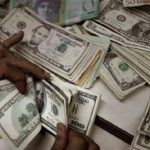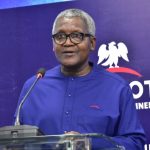Economy
Senior US Official Visits Nigeria to Discuss Business Innovation, Others
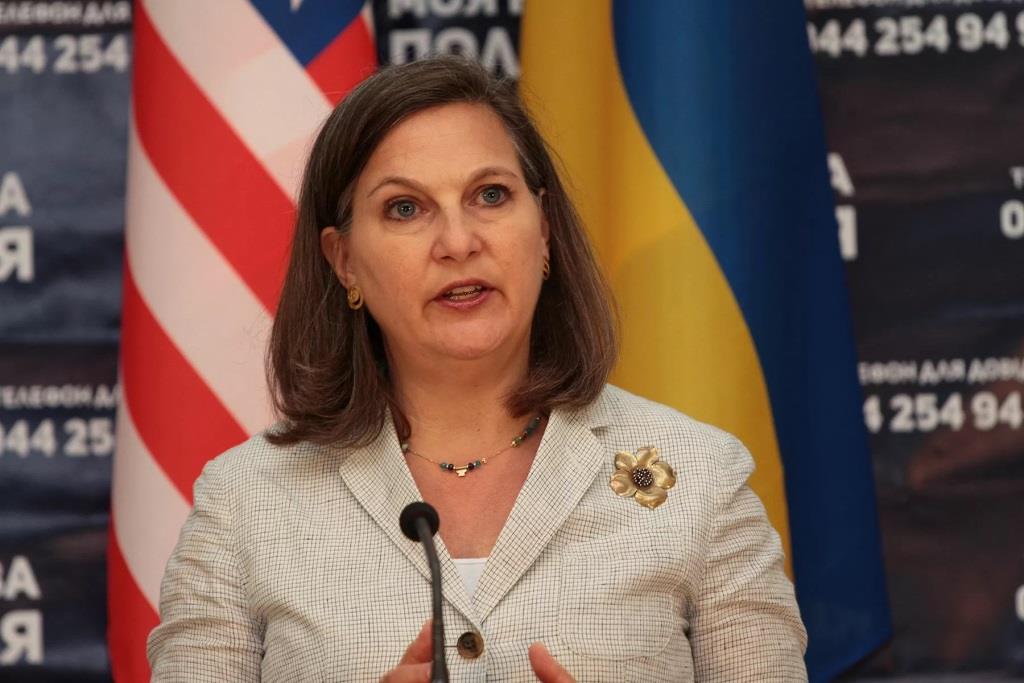
By Kestér Kenn Klomegâh
From June 11-17, 2022, the United States Under-Secretary of State for Political Affairs, Ms Victoria Nuland, visited Nigeria, Djibouti and Mozambique to discuss affecting the African continent.
Throughout the trip, the Under Secretary highlighted the important work the United States has been doing with African and international partners to shore up global food security and health systems.
During her visit to Nigeria, the senior US official and the team discussed with the government and civil society representatives significant issues of shared concern including regional security, free and fair elections, and business innovation.
While in Djibouti, Under Secretary Nuland and an interagency team interacted with government counterparts to advance the US-Djibouti relations and close security cooperation.
In Mozambique, according to reports from the US Department of State, Deutsche Welle and Rádio Moçambique, the United States promised to assist the country with a further donation of $40 million (€38.2 million) to support the displaced and victims of natural disasters in northern Mozambique.
In addition, the United States would also offer $14 million annually over the next 10 years to help rebuild Cabo Delgado.
Ms Nuland said the financial grants were part of the “emergency response to the food needs of those displaced by war and terrorism, social protection, building resilience to climate change and nutritional support for children” and the priority was to prevent “people in a situation of food insecurity in Mozambique from falling into a situation of hunger” in the country.
She emphasised that the United States would also try to persuade other rich countries to provide more aid to victims of hunger in the world, especially in Africa, especially given the worsening of the situation due to “the blockade of cereals by Russia” in the context of its invasion of Ukraine.
“One of the great global challenges is food insecurity,” which “results from climate change, droughts, conflicts and terrorism, exacerbated by the war waged by Russia against Ukraine,” she explained.
Of the amount announced by the United States government, WFP will receive the largest share, worth $29.5 million (€28.2 million). “It is timely support from the US because it allows us to maintain humanitarian assistance to the approximately 940,000 war-displaced people from Cabo Delgado until September,” WFP Mozambique director Antonella D’Aprile said.
D’Aprile said that the resources made available would make it possible to help victims of armed violence in Cabo Delgado and host families in the provinces of Nampula and Niassa, for which the WFP needs $17.4 million a month. The United States is the largest WFP donor in Mozambique, having channelled $207 million (€197 million) since 2017.
The International Organization for Migration (IOM) estimates that almost 12,000 people have fled the new wave of attacks on Cabo Delgado that began about a week ago, this time in the south of the province, which was considered a safe zone. More than half are children and there are at least 125 pregnant women among the terrorised population, some of whom are fleeing for a second time, abandoning places where they were starting life anew.
The new wave of attacks is hitting areas around 100 kilometres from Pemba, which already served as a refuge for people forced in recent years to leave the worst affected areas to the north, with the epicentre in districts close to the gas extraction projects under construction.
Joint forces of the Southern African Development Community and the Mozambican government killed an unspecified number of terrorists and wounded others in an offensive against armed groups in Cabo Delgado on June 9.
Cabo Delgado province, in northern Mozambique, is rich in natural gas, but has been terrorized since 2017 by armed rebels, with some attacks claimed by the Islamic State extremist group. According to the International Organization for Migration (IOM), about 784,000 persons have been internally displaced by the conflict, which has killed about 4,000, according to the ACLED conflict registry project.
Since July 2021, an offensive by government troops, with the support of Rwandan and later Southern African Development Community (SADC) troops, has recovered a number of areas from rebel control, but their flight has led to new attacks in districts through which they have passed or taken up temporary refuge.
African leaders at the summit of the African Union held in Addis Ababa highly praised Mozambique’s approach to terrorism in the northern province of Cabo Delgado, involving troops from Rwanda and the Southern African Development Community Military Mission (SAMIM).
Mozambican Minister of Foreign Affairs and Cooperation, Verónica Macamo, has expressed confidence in the election to the UN Security Council, saying that the experience in the fight against terrorism would be an “advantage” in its favour.
Mozambique, during its campaign for UNSC seat, was supported by the African Union. June witnessed the final election of five member states – Ecuador, Japan, Malta, Mozambique and Switzerland – for the five new non-permanent member seats at the United Nations (UN) Security Council for 2023-2024.
Economy
Dangote Taps Vetiva, Others for $20bn Refinery NGX Listing
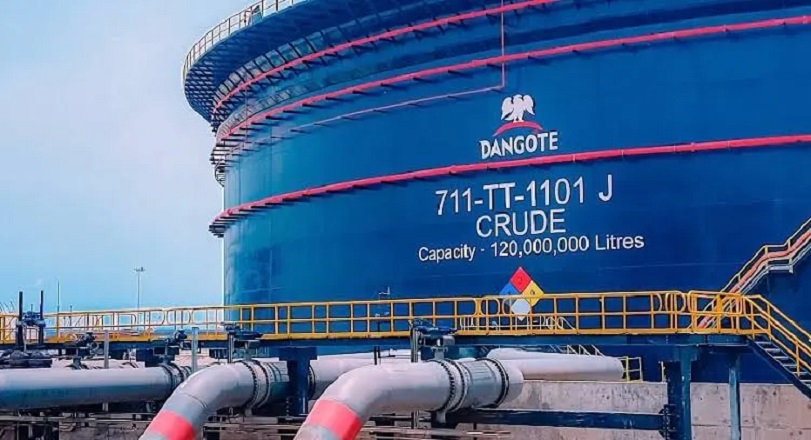
By Adedapo Adesanya
The Dangote Group has appointed Stanbic IBTC Capital, Vetiva Capital Management, and First Capital as lead issuing houses and financial advisers for its planned listing of its $20 billion Dangote Petroleum Refinery and Petrochemicals on the Nigerian Exchange (NGX) Limited in the coming months.
According to reports, which cited sources familiar with the matter, the listing could mark Africa’s largest equity offering, with plans to float 5-10 per cent of the refinery at a debut valuation of $40-50 billion. This could potentially boost the Nigerian main bourse’s market cap past N200 trillion from the current almost N125 trillion.
Stanbic IBTC, part of Standard Bank, will handle international book-building and foreign investor outreach, while Vetiva, with prior Dangote listing experience, focuses on local retail and regulations.
Late last month, the chairman of Dangote Group, Mr Aliko Dangote, said that within the next five months, Nigerians should be able to purchase shares of the refining subsidiary of his conglomerate.
The Lagos-based refinery is the largest single-train refinery in the world with 650,000 barrels per day refining capacity. There are efforts to boost the capacity to 1.4 million barrels per day soon.
“Nigerians too will have an opportunity in the next, maybe a maximum of four to five months. There will actually be an opportunity to buy the shares,” he said during a tour of the facility by the chief executive of the Nigerian National Petroleum Company (NNPC) Limited, Mr Bayo Ojulari, alongside members of the company’s executive management.
The facility, which is now operating at full capacity, a world-record milestone for a single-train refinery, comes after the completion of an intensive performance testing on the refinery’s Crude Distillation Unit and Motor Spirit production block.
The refinery is now positioned to supply up to 75 million litres of petrol daily to the domestic market, an increase from the 45 million – 50 million litres delivered during the recent festive period.
The development can reshape Nigeria’s energy landscape and reduce the country’s longstanding dependence on imported refined products while positioning the country as a net exporter to West African markets.
Yet, the refinery faces difficulty securing adequate crude oil supplies from Nigerian producers, forcing it to import feedstock from the US, Brazil, Angola, and other countries.
Economy
Nigeria’s Net FX Reserves Climb 50% to $34.8bn in 2025
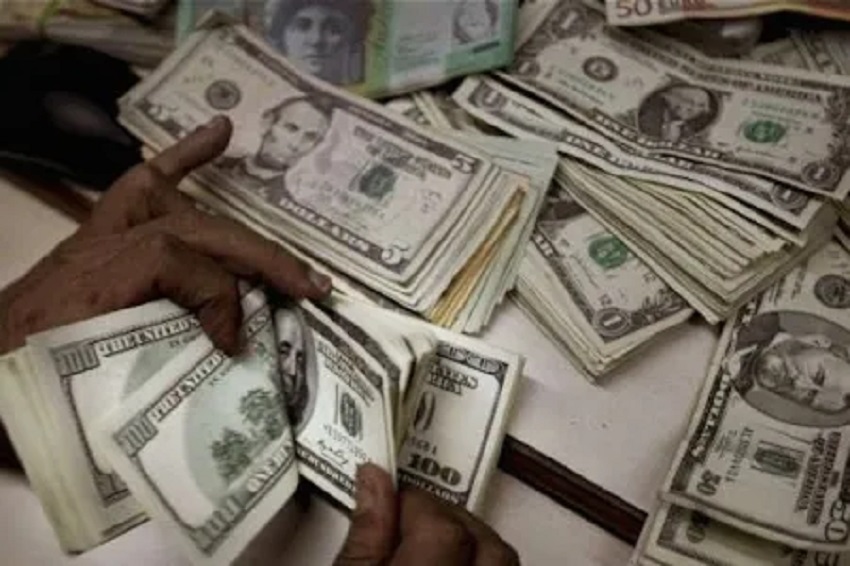
By Adedapo Adesanya
Nigeria’s net foreign exchange reserves rose 50.6 per cent to $34.80 billion at the end of 2025, marking a sharp improvement in the country’s external liquidity position.
Net foreign exchange reserves refer to a country’s readily available external reserve assets after deducting short-term foreign liabilities. This is unlike gross foreign exchange reserves, which are the full stock of external reserve assets held by a country’s central bank, without subtracting any liabilities or commitments.
In a statement issued on Monday by the Central Bank of Nigeria (CBN), citing the Governor, Mr Yemi Cardoso, it was disclosed that net reserves increased from $23.11 billion at the end of 2024 to $34.80 billion at the close of 2025, representing a $11.69 billion rise within one year.
The figure also reflects a significant recovery from $3.99 billion at the end of 2023, signalling what the apex bank described as a marked improvement in reserve quality over a two-year period.
“The Governor of the Central Bank of Nigeria (CBN), Mr Olayemi Cardoso, has stated that Nigeria’s gross and net foreign reserves showed significant improvement at the end of 2025, reflecting stronger external sector fundamentals and sustained policy reforms.
“Following his disclosure at the post-Monetary Policy Committee (MPC) press briefing on Tuesday, February 24, 2026, where he said the country’s gross external reserves stood at $50.45 billion as of February 16, 2026, Mr. Cardoso, at the weekend, said the net foreign exchange reserves, as at the end of December 2025, rose to $34.80 billion,” the statement said.
Notably, the 2025 net reserve position exceeded Nigeria’s total gross external reserves recorded at the end of 2023, which stood at $33.22 billion.
This means that the country’s liquid and unencumbered foreign exchange buffers as of end-2025 were stronger than the entire headline gross reserve level just two years earlier.
According to Mr Cardoso, gross external reserves rose from $40.19 billion at end-2024 to $45.71 billion at end-2025, reflecting a $5.52 billion increase. As of February 16, 2026, gross reserves had climbed further to $50.45 billion.
He said the improvement in both gross and net reserves reflects stronger external sector fundamentals and sustained policy reforms.
The apex bank governor attributed the surge to improved transparency and credibility in foreign exchange management, which he said boosted investor confidence and attracted stronger FX inflows.
He added that enhanced reserve management practices were aimed at preserving capital, ensuring liquidity and supporting long-term sustainability.
According to him, the expansion highlights Nigeria’s improved capacity to meet external obligations, support exchange rate stability and reinforce overall macroeconomic resilience.
He described the end-2025 reserve position as validation of the Bank’s ongoing reforms and external sector adjustments, reaffirming the CBN’s commitment to maintaining adequate buffers and orderly foreign exchange market operations.
Economy
Stanbic IBTC Bank Nigeria PMI Shows Ease in Selling Price Inflation

By Aduragbemi Omiyale
Selling price inflation reached its lowest level in over six years in February 2026, as the Purchasing Managers’ Index (PMI) settled at 53.2 points compared with 49.7 points in January, according to Stanbic IBTC Bank Nigeria, which takes the readings.
In the month under review, the Nigerian private sector returned to growth after a muted start to 2026, with a rise in new orders, triggered by an accelerated increase in business activity.
It was observed that the contraction in selling price inflation was influenced by an improvement in the strength of the currency.
“After the dip seen in January, the Nigerian private sector returned to growth, with the headline PMI settling higher at 53.2 points in February from 49.7 in January. This was in line with higher customer demand, which drove higher new product offerings at competitive pricing.
“Accordingly, output (55.8 vs January: 50.2) regained momentum in February while new orders (55.5 vs January: 49.9) also increased markedly in the month. Notably, the wholesale and retail sector, which had dipped in January, returned to growth, thereby ensuring that all four monitored sectors by the survey increased in February,” the Head of Equity Research West Africa at Stanbic IBTC Bank, Mr Muyiwa Oni, commented.
“Local currency appreciation helped to support softer input and output prices in February, as the Naira has been trading below N1,400 against the USD consistently since 29 January,” he added.
“Strengthening external account, higher offshore FX flows, and improvement in remittances continue to support higher FX supplies with the CBN also stepping in by buying USD in the FX market to moderate the pace of local currency appreciation,” he further stated.
Mr Oni projected that likely lower interest rates in line with lower inflation and exchange rate stabilisation should support private consumption and business investments in 2026.
“Because of these factors, we see more sectors contributing to real GDP growth rate in 2026 compared to 2025, likely translating to an improvement in the quality of lives of the citizens compared to the last two years when the citizens witnessed the full negative impact of the government’s flagship reforms,” he submitted.
-

 Feature/OPED6 years ago
Feature/OPED6 years agoDavos was Different this year
-
Travel/Tourism10 years ago
Lagos Seals Western Lodge Hotel In Ikorodu
-

 Showbiz3 years ago
Showbiz3 years agoEstranged Lover Releases Videos of Empress Njamah Bathing
-

 Banking8 years ago
Banking8 years agoSort Codes of GTBank Branches in Nigeria
-

 Economy3 years ago
Economy3 years agoSubsidy Removal: CNG at N130 Per Litre Cheaper Than Petrol—IPMAN
-

 Banking3 years ago
Banking3 years agoSort Codes of UBA Branches in Nigeria
-

 Banking3 years ago
Banking3 years agoFirst Bank Announces Planned Downtime
-

 Sports3 years ago
Sports3 years agoHighest Paid Nigerian Footballer – How Much Do Nigerian Footballers Earn






